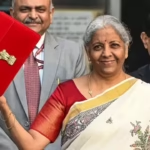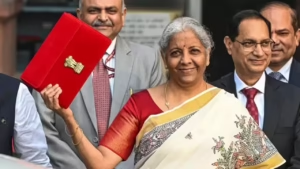In a significant shift in India’s FMCG market, smaller FMCG players are growing at a faster pace than their larger counterparts, according to a recent report by Emkay Research. The report attributes this trend to faster innovation cycles, better alignment with youth preferences, and the increasing dominance of modern trade, e-commerce, and quick commerce platforms.
Smaller FMCG Brands Lead the Growth Race
The report highlights that smaller FMCG companies in India are leveraging their agility to respond more effectively to evolving consumer demands. Unlike established giants, these nimble players are launching innovative, niche products that cater specifically to health-conscious, experimental, and value-driven consumers, especially among the youth.
“A quick comparison of growth trends across company sizes… indicates that smaller FMCG players are outpacing larger peers,” Emkay Research noted.
These brands are successfully tapping into emerging consumption patterns and rapidly rolling out products that are digitally native, locally inspired, and sustainability-focused.
Role of E-Commerce and Quick Commerce in FMCG Growth
A key enabler for this shift is the rise of e-commerce, modern trade, and particularly quick commerce. According to the report, these channels now contribute around 20% of the overall FMCG sector — a significant jump from previous years.
Platforms like Zomato Blinkit, Swiggy Instamart, and Zepto have democratized market access by:
- Offering equal shelf space to both established and new FMCG brands
- Enabling instant feedback and data-driven marketing
- Reducing entry barriers for digital-first companies
- Promoting their own private label offerings alongside major products
Challenges for Big FMCG Companies
While smaller brands are thriving, large FMCG companies such as Hindustan Unilever and Nestle are grappling with slower growth rates. The Emkay report points to several contributing factors:
- Frequent price hikes have impacted their value-for-money perception, causing some consumers to seek alternatives.
- Heavy dependence on general trade has restricted innovation, as traditional distribution focuses on legacy products and broader reach over specialization.
- Inability to adapt quickly to changing consumer behaviors and digital expectations.
The Emkay Research report underlines a crucial shift in India’s FMCG sector, Smaller FMCG players are no longer niche participants, they are now setting the pace for industry growth. As the balance of power shifts, traditional giants must rethink their strategies or risk falling further behind in one of the world’s most dynamic consumer markets.












More Stories
India Closer to a Naxal-Free Future: Amit Shah’s Audacious Deadline
Education sector sees new initiative to support IELTS test preparation
India and UK Chart Roadmap for Implementing Historic Free Trade Agreement